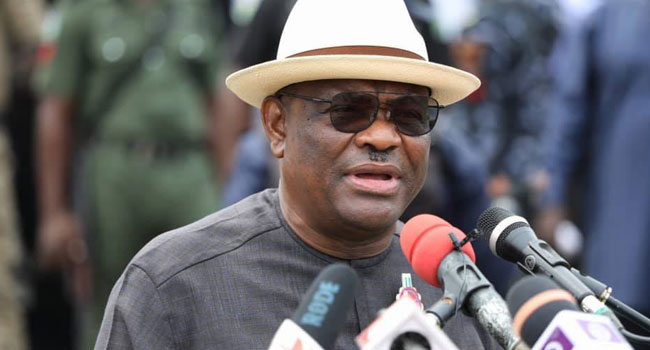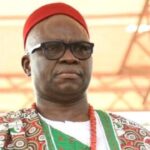When the Rivers State was created by Nigeria’s federal government led by General Yakubu Gowon in 1967 the likelihood that the nation would descend into civil war was sealed. Apart from the fact that the decision excised some of the richest oil-bearing sectors in the Eastern Region from the control of the Region’s dominant ethnic group, the Igbos, it also transformed Port Harcourt, the wealthiest and most dynamic metropolis in the region into a subject of controversial territorial ownership. Given the nature of controversy and dissent that surrounded the state’s founding it should surprise no one that its growth has also been bedeviled by political controversy and territorial disenchantment constantly.
For several years, political discourse in the state focused on the issue of choice of leadership from the so-called riverine communities that are occupied by the peoples of the Ijaw ethnic nationality and that of the so called upland communities occupied by people regarded as being closely related to their Igbo neighbours. This issue became even more central to the nature of politics in the state when in 1996 the Abacha-led Government expunged the riverine majority of communities in the state by creating Bayelsa State. This controversial territorial issue was resolved in the year 2000 with the election as Governor of Dr. Peter Odili a quintessential upland leader whose heritage as a leader of opinion in the state could hardly be queried or challenged. Dr. Odili’s two-term tenure as elected leader was not only very successful in providing unquestioned dividends of representative governance in the state but it also changed the dynamics of communal relationships and the terms of transitional power in leadership. So far it can hardly be denied that the leadership that has succeeded his term in office has evolved from his own legacies of political conduct.
After a controversial run for the Presidency, which was halted by his party’s leader, President Obasanjo in controversial circumstances, Dr. Odili first of all supported the emergence of his own political ward, Rotimi Amaechi to contest the party’s ticket. When for some vaguely inexplicable reasons President Obasanjo also expressed disenchantment with that choice of successor, the selection of Amaechi was aborted, Dr. Odili threw his support behind another political ward of his from the upland communities, Celestine Omehia who emerged from the same community as Amaechi. Amaechi challenged the selection of Omehia successfully in the Supreme Court and so, under the most controversial of circumstances, Odili’s influence in the leadership of the state continued but under the strain of partisan disenchantment. It was not long after Rotimi Amaechi became governor before the far reaching consequences of the fall-out from local political crises in the Rivers State as a vital element of national politics became obvious.
Although Amaechi had been granted leave to occupy the seat of governor as representing the Peoples Democratic Party (PDP), he soon made it clear from his utterances that he entertained serious doubts about the party’s support of his vision and intentions. Nyesom Wike, a mutual member of the Odili team served as his Chief of Staff for a short while but within a few weeks, it became clear that they were operating at cross purposes. Soon, the President of the Federation, Dr. Goodluck Jonathan who hailed from the neighbouring Bayelsa State, which had once been an integral portion of the state came under severe attack from Governor Amaechi. Within a short while, it was obvious that even though he did not have popular support, he had decided to abandon the PDP. He became a major supporter of the APC when it succeeded in defeating the PDP in national elections and so he gained appointment as a senior minister in the Buhari administration even though his major adversary at home, Nyesom Wike held the state firmly.
The consensus of public opinion in the state now holds the view that in spite of the dysfunctional circumstance of his elevation, Amaechi fulfilled the ministerial mandate, in which he handled the transport portfolio, commendably, and as a result still has a credible reputation among his home supporters as well as nationally.
In terms of the contemporary relevance of the local politics of Rivers State to the national political direction, it is particularly noticeable that the authority wielded by Governor Nyesom Wike nationally emanates from principles that he has promoted at home. In recent times, he has taken on the mantle of the validity of the precedent represented by earlier crises to stand firmly in defence of the principle of regional zoning and power sharing as a productive convention within his party. Throughout his tenure, he has cooperated publicly with, and expressed deep respect for, prominent and popular leaders of communities from various parts of the state like Chief Ferdy Alabrabah from Abonemma, O.C.J. Okocha from the Ikwerre community, King Dandeson Jaja of Opobo, and King Edward Pepple of Bonny among others. His respect for and close alliance with such prominent community leaders has been regarded as one of the most exemplary aspects of his conduct as a leader, and has helped to ensure popular support at home for his initiatives abroad.
As a consequence, Governor Wike’s stance against the outcome of the recent primary process of his party that brought the former vice president of the nation forward as the party’s presidential candidate has enhanced public support for him in the state. Although he appears to have turned his back on the party on the ticket of which he was elected, this perception has attracted increased loyalty from the public in the state. The electorate of the Rivers State might be inclined to show its willingness to jettison the status quo and reflect the cry for a wholehearted change in the polity at the next election. His firm adherence to sentiments of disenchantment might eventually consolidate the role of the Rivers State as a political anomaly where the leadership achieves genuine change by encouraging public dissent rather than maintaining loyalty to an elitist status quo.
Barett resides in Abuja

 Join Daily Trust WhatsApp Community For Quick Access To News and Happenings Around You.
Join Daily Trust WhatsApp Community For Quick Access To News and Happenings Around You.


